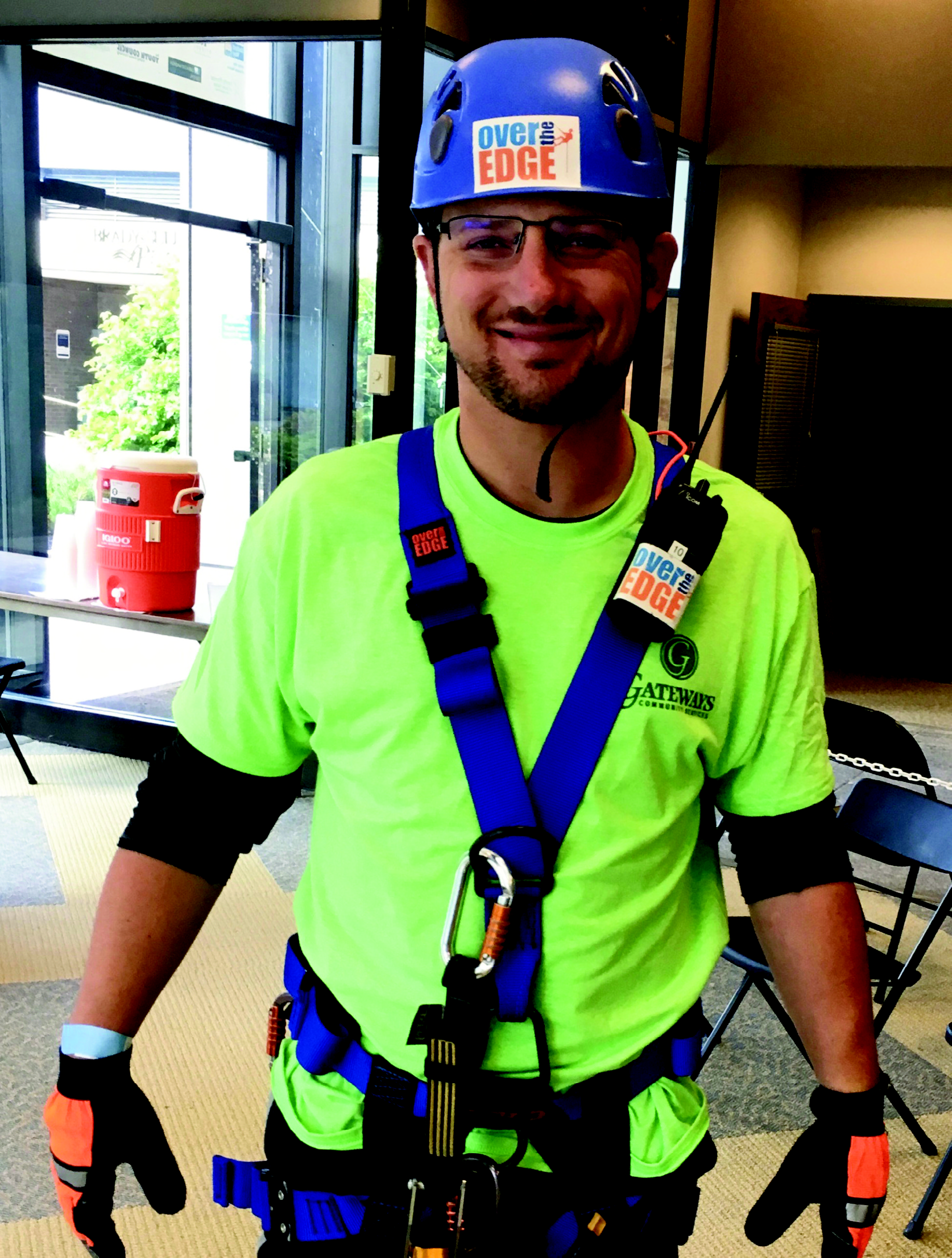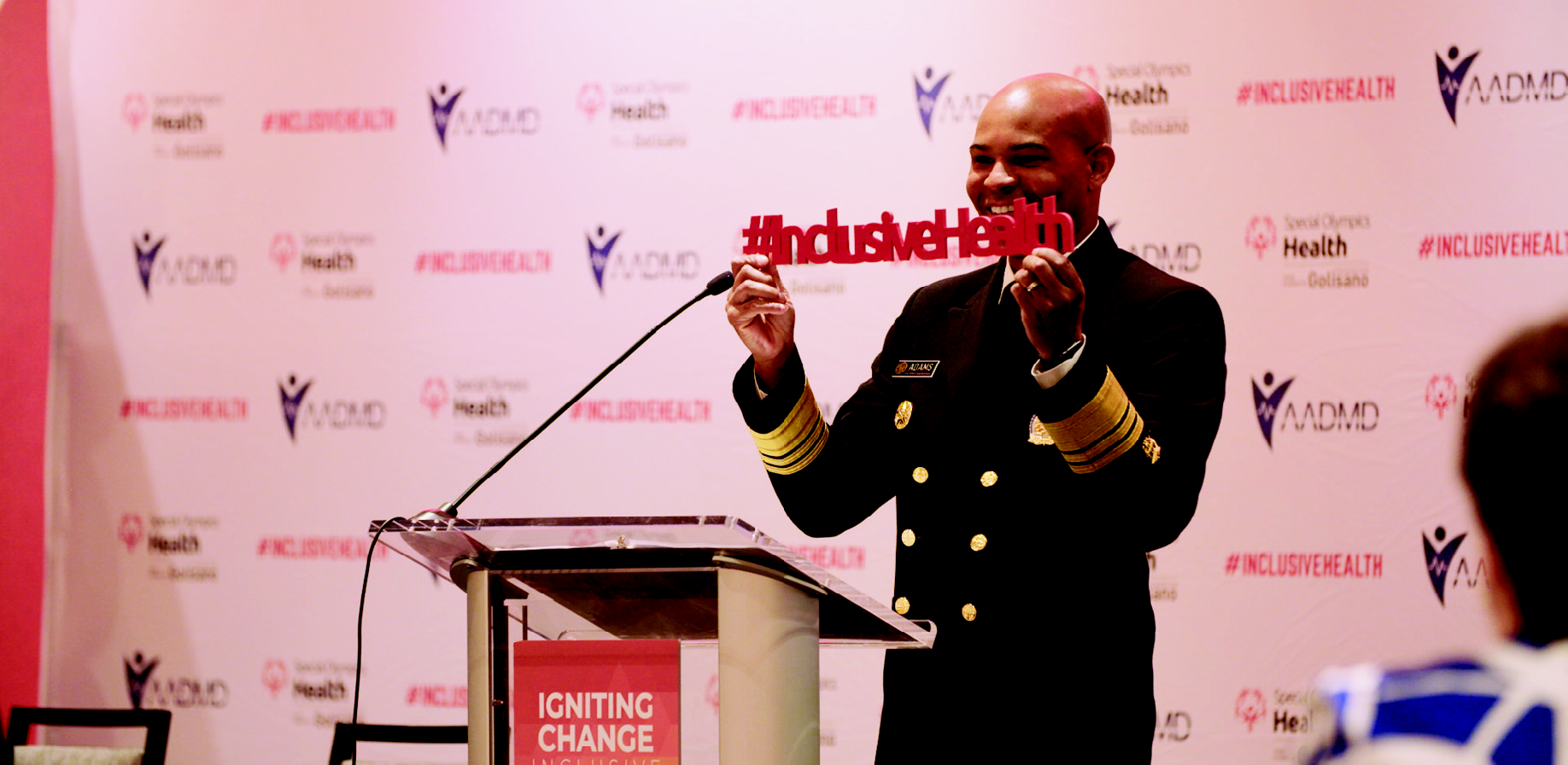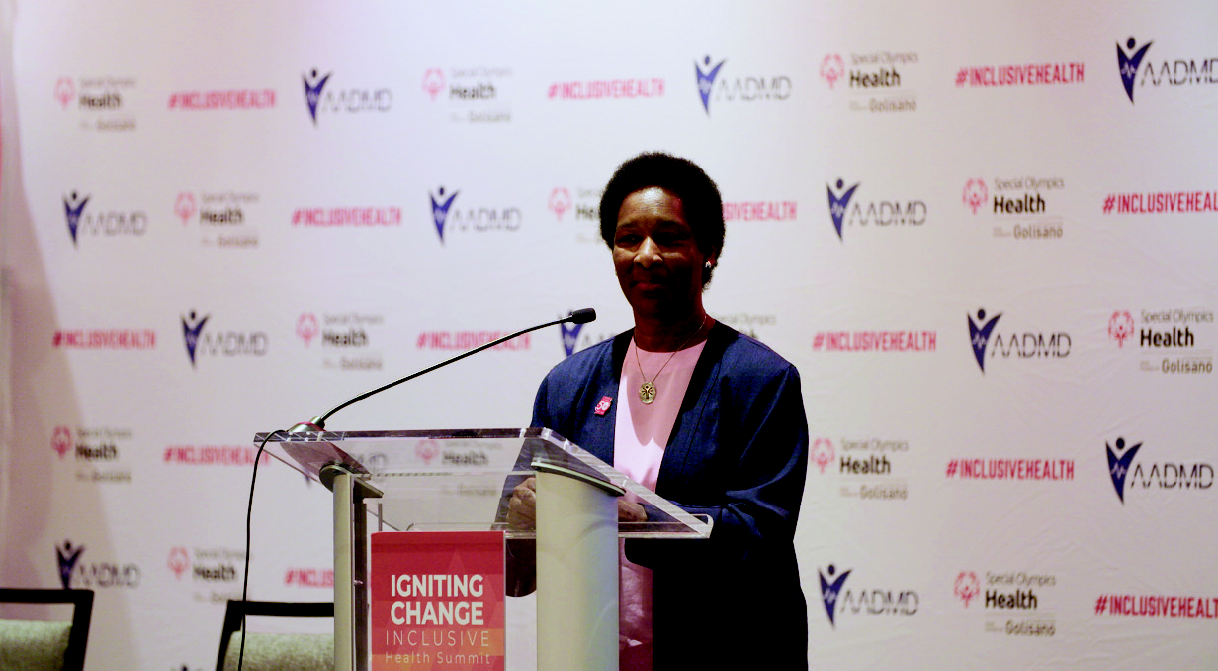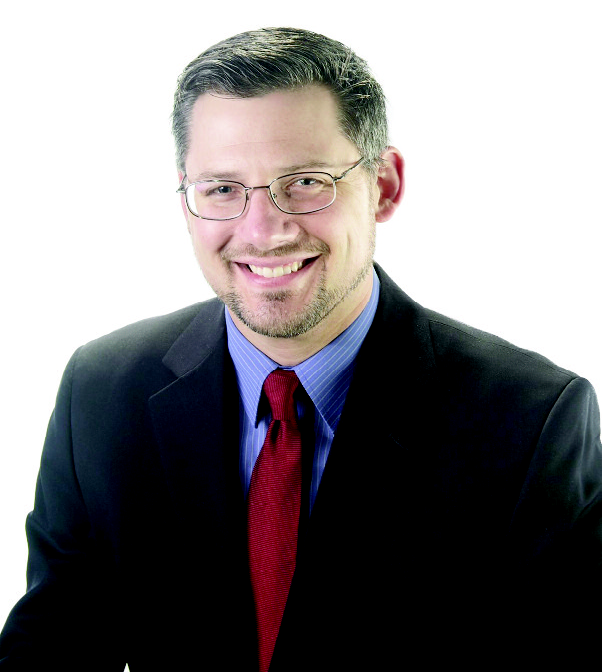
CLOSE TO THE EDGE: Parker, about to go Over the Edge, rappelling down a building in an exciting and completely safe environment. He lives an active life and has become a leader in the Special Olympics Movement.
Parker Thornton is 37 years old, plays golf, and is an avid writer living in New Hampshire. Today, Parker is a Special Olympics Health Messenger, delivering speeches and motivating advocates across the United States for inclusive health for people with intellectual disabilities. But when Parker was born, few would have guessed he would be where he was on June 30, 2018: speaking to an audience of 300 health leaders, including the U.S. Surgeon General Vice Admiral Jerome M. Adams, at the Inclusive Health Summit in Seattle, Washington.
As a newborn, Parker contracted viral meningitis and was hospitalized at Boston's Children's Hospital for five weeks, much of it on life support. He survived his first challenge, but with brain damage that left him with significant learning disabilities, an anxiety disorder, and resulting depression. Doctors told his parents he was dying and that if he lived would need to be in an institution. For people with intellectual disabilities, like Parker, access to good healthcare, nutrition, and exercise is critical to wellbeing and full participation in society.
Like many people with intellectual disabilities, Parker relies on Medicare and Medicaid to access health care and to be a part of his community. When his psychiatrist of 20 years left his clinical practice, it took his parents 18 months to find a reputable psychiatrist within 25 miles who accepted their insurance.
A Troubling Reality
People with intellectual disabilities die an average of 16 years prematurely compared to the general population because conditions like diabetes, hypertension, cancer, and heart disease go undetected and untreated. The solution is including people with intellectual disabilities in mainstream health policies, services, training programs, research, and funding streams. This is the definition of inclusive health.
Special Olympics Health, made possible by the Golisano Foundation, began screening athletes at competitions in 1997. Over the past 20 years, Special Olympics increased the number of clinical screenings, taught medical students how to provide quality care for people with intellectual disabilities, established community-based health promotion and wellness programs tailored for people with intellectual disabilities. In addition, Special Olympics helped entire health systems identify the gaps in health coverage for people with intellectual disabilities.
Making The Future Inclusive
But one organization cannot solve this problem alone. On June 30, on the eve of Special Olympics USA Games in Seattle, Parker, the U.S. Surgeon General, and 300 other public health leaders convened the Inclusive Health Summit at the annual conference of the American Academy of Developmental Medicine and Dentistry (AADMD) to ignite change and launch the Center for Inclusive Health.
Parker appealed to the professional mandates of the health leaders at the Summit, saying "I know you know that this is not okay. How can we as a society and as professionals in the health space be okay with leaving out so many from quality health services and programs? I want to motivate and stir up and get people

HELD IN HIGH ESTEEM: The 20th Surgeon General of the United States, Dr. Jerome Adams, calls for inclusion: "Better health through partnerships can only be achieved if we reframe the way we discuss health in this country."


CALLS FOR INCLUSION: (Above left) Special Olympics Athlete and Chief Inspiration Officer Loretta Claiborne at the Inclusive Health Summit; (Above right) Special Olympics New Hampshire Athlete Parker Thornton asked "How can we as a society and as professionals in the health space be okay with leaving out so many from quality health services and programs?"
thinking about how they can make changes to better the lives of people with intellectual disabilities." U.S. Surgeon General Jerome M. Adams echoed Parker's statements, saying "We are committed to improving the lives of people with intellectual disabilities. We need everyone in the broader public health system to do their part to close the gap." The obstacles people with intellectual disabilities face to accessing quality health care impact health care costs and prevent them from being productive members of the community. Inclusive health has the potential to improve the wellbeing of all people. "Organizations really need to invest in inclusive health because it's a good thing, not just for the individual, but it's a good thing for their organizations and for our communities as a whole," Surgeon General Adams said.
Special Olympics partners with the Centers for Disease Control and Prevention (CDC) and the Golisano Foundation to make inclusive health a reality. At the Inclusive Health Summit, the Center for Inclusive Health (inclusivehealthcenter.org) was launched, connecting professionals with resources to take action. This web-based platform houses resources including case studies, testimonials, videos, and toolkits to assist healthcare professionals, fitness and wellness professionals, and businesses, as they make their services and programming more inclusive.•
ABOUT THE AUTHOR: Megan Strembitsky is a Manager with the Center for Inclusive Health, Special Olympics International.